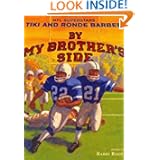
The first book I chose was If You Take A Mouse to The Movies, by Laura Numeroff. (2000) Scholastic;this book is one of the
many in a series.
Four aspects that might affect
students' comprehension:
·
Cover of the Book- The cover is
misleading and it looks like a Christmas Story.
·
The holiday Christmas- if it is not
celebrated or recognized.
·
Carols- Another word that is related
to Christmas, which may not be universal word for singing.
·
Pictures/Text- They don’t necessarily
align.
I looked at many books that could be affected by
cultural aspects that would make it hard to comprehend for second language
learners. In the first book, the cover
could be misleading, it has Christmas decorations on it, but the book is about
a mouse going to the movies. To help with
this I would first “Picture Walk,” the book to see what the kids think or what
is confusing. The second issue is the
fact that the story does talk about Christmas and decorations that, depending
on the culture, may be not recognized or celebrated. To help with this I would talk about the
holiday Christmas and, without being two specific, talk about how it is a time
to celebrate and use their own experiences to relate to a day or holiday that
they have celebrated. Thirdly, the story
has a sequence but the pictures do not always line up with what the text is
saying. One strategy I use to help
students with reading is using pictures to help decode or work on
comprehension; however, the picture in the story doesn’t always align with the
text. To work with this issue I would take
a “Picture Walk,” through the book looking at each page and discussing it.

NFL Superstars, Tiki and Ronde Barber Game
Day, illustrated by Barry Root, (2005) Scholastic.
Four aspects that might affect
students' comprehension:
·
Relationship of the boys in the
story.
·
Sequence of Events, one of the boys
is hurt but doesn’t explain when or where this happened.
·
Flow of the story, the book jumps
forward without understanding.
·
Phrase, “Play with the cards you are
dealt with,” students may not get this message.
The second book I chose is a
popular book in my class. The book is recognizable to most of my second
language learners because of the football players on the cover and throughout
the book. The first part that may be
confusing and affect comprehension is that the two boys in the story are
actually twin brothers; however, the book goes back and forth between calling
them by their names or referring to them as twins. To work with this I would introduce the
characters first, the back of the book shows the two boys and explains that
they are twins. Second, one of the boys gets hurt but it
doesn’t talk about when or where, it is just that one game he is playing and
the next he is sitting on the bench for an injury. To help with this I would do
a sequence of events as a visual on the board and talk about details in the
book that may not be discussed in full and when reading this book point out
that he has an injury in one section of the book, also have them relate their
experience to one of the players. In
addition the book jumps forward from one of the boys being upset that his
brother gets all the attention to the final game where he scores, the book is
good but the flow is hard, I had to read it twice. Again, to help with this I have a Flow Chart
that would help with the flow of the book by talking about first, next, and
last. Finally, there is a message from the book
about playing the cards you’re dealt with and it is phrased that way, could be misinterpreted. I
would explain that the book has a message and have them talk to me what they
think the message is; I would clarify and give other examples of the same
message.
Using pictures and flowcharts are two great methods of scaffolding second language learners. The cover of the first book you analyzed is indeed misleading. The title says, "If You Take a Mouse to a Movie," but the illustration looks like Christmas with that tree.
ReplyDeleteHi Tracy,
ReplyDeleteHaving the students do a picture walk before reading is always helpful. It usually boosts comprehension and prepares the children to read. A picture walk activates student schema and allows students to ask questions, make connections, and possibly identify unknown words. I thought your idea of using a flow chart for the second story was a great idea! Students will be able to make meaning from concrete pictures. Thanks for the post!
-Christa